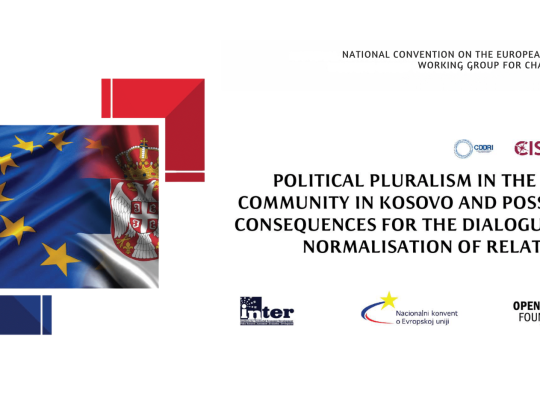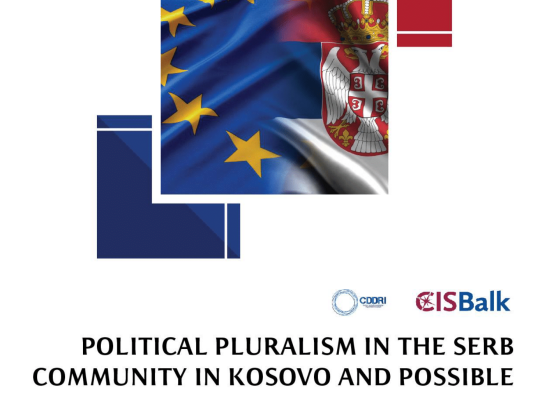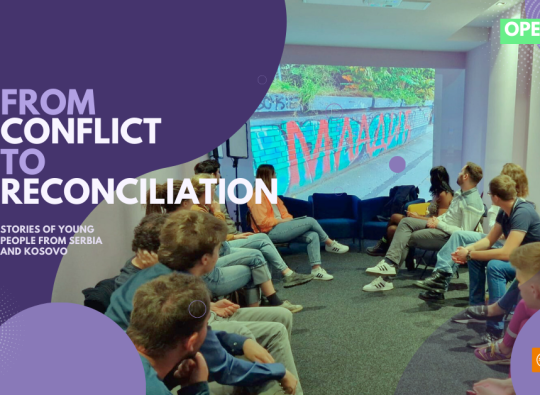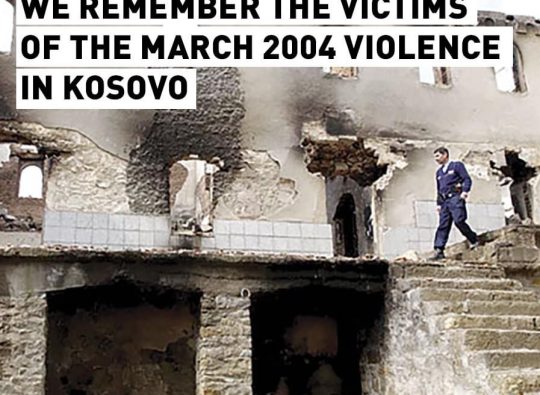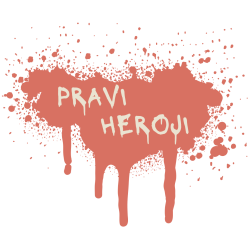Korab Krasniqi from the forumZFD Kosovo Office, manager of the project and publication “Kosovo – Memory Heritage” said that for him it would not be a problem to say that some objects are only Serbian or only Albanian, but this should be a starting point for conversation and discussion about cultural heritage.
“People should explore this topic, and not talk about politics and divisions only” said Kransiqi.
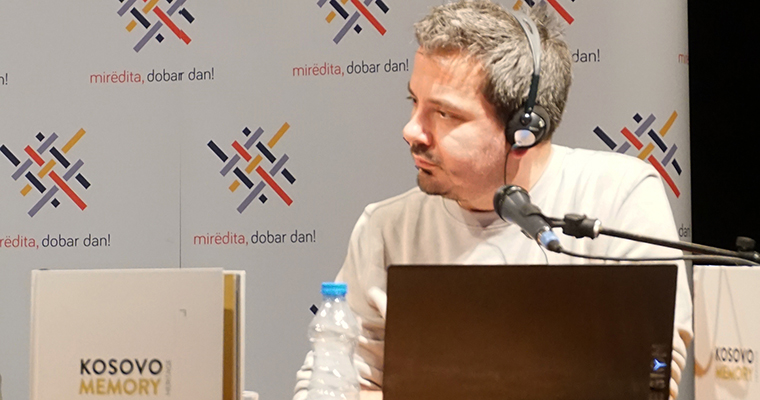
Durim Abdulahu from the Faculty of Philosophy in Priština said that Kosovo is a space where a variety of people have lived and still live and they look at the cultural heritages equally, monuments, churches, mosques.
“Politicians have no emotions about heritages and about cultural heritage in Kosovo. This is the space in which Serbs and Albanians used to live, the same nations still come to see these objects. So, it should be a common heritage and everybody should have access to it”, said Abdulahu.
Asked by the moderator, journalist Antonela Riha, whether the moments of community are possible today in spite of growing tensions, the participants concluded that the politics is focused on the policy of identities and divisions, but these are not processes that have anything to do with the culture of people living in these territories.
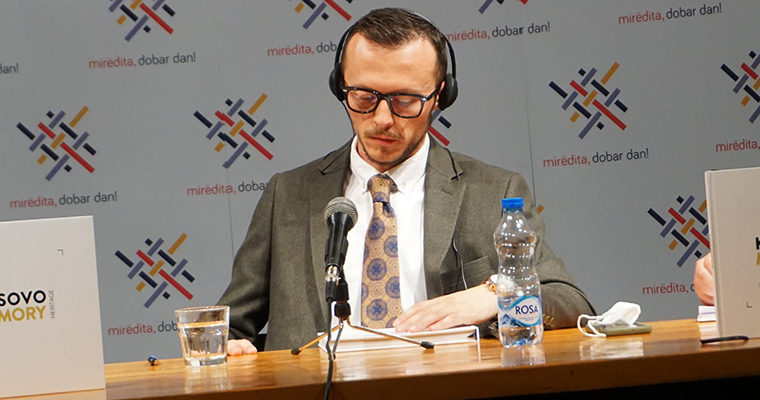
Asked whether they are aware of the view in Serbia that churches and monasteries in Kosovo are the heritage of the Serbian Orthodox Church and that they do not belong to Kosovo, Krasniqi said that different interpretations are there, which opens the space for conversation about cultural heritage.
“As long as there are two opposing narratives, it is difficult to find the middle. The first step should be for our societies to start a dialogue, and focus on research and not on political divisions”, said Krasniqi.
Talking about whether Serbian churches and monuments in Kosovo are protected in the same way as all the others and what the priorities are, Abdulahu said that nations in Kosovo do not tend to destroy and that the heritage is becoming the subject of politics.
Interested visitors will have the opportunity to see the exhibition “Memory Heritage in Kosovo” at the “Endžio” gallery in Dobračina Street.
The last day of the Festival is reserved for a debate about transitional justice in Kosovo and its institutionalisation. The Festival will be closed by actor Tristan Halilaj and his reading of excerpts from his book “Richard Gere was Here”, a collection of stories originally published in Serbian labguage.
For the end, the audience will have the opportunity to see film “Aga’s House” scheduled for 8.30 PM at the Centre for Cultural Decontamination.
The “Miredita, dobar dan” Festival is taking place in Belgrade until October 24. In addition to the theatre play, film and book reading, key issues relating to transitional justice, the beginning of work of the Specialist Court for the Kosovo Liberation Army and how it works, and justice for non-Albanian victims will also be discussed at the Festival.
The Festival seeks to initiate change and foster a tradition of co-operation by bringing together Serbian and Kosovo social and cultural communities, and thus contribute to lasting normalisation of relations between Belgrade and Pristina.
A unique “Mirëdita, dobar dan!“ Festival that has been taking place in Belgrade since 2014, is organised by the Youth Initiative for Human Rights and Civic Initiatives from Belgrade and Integra from Priština.

